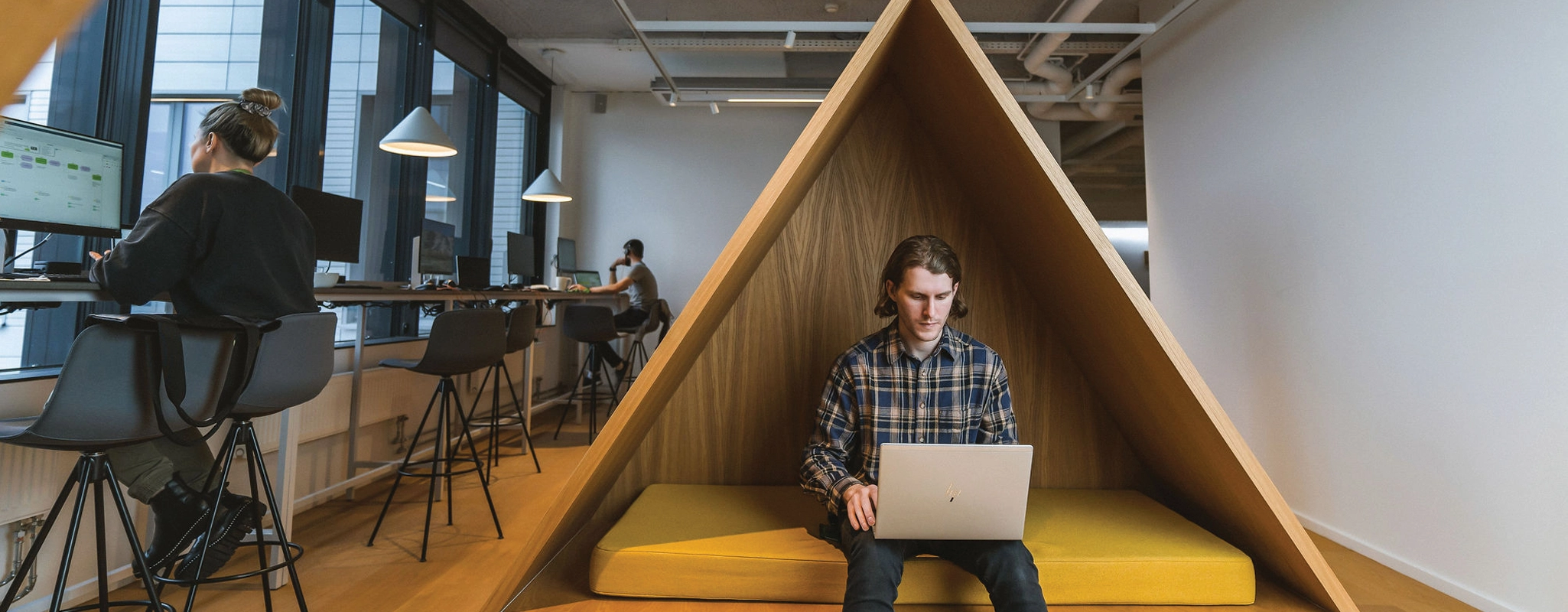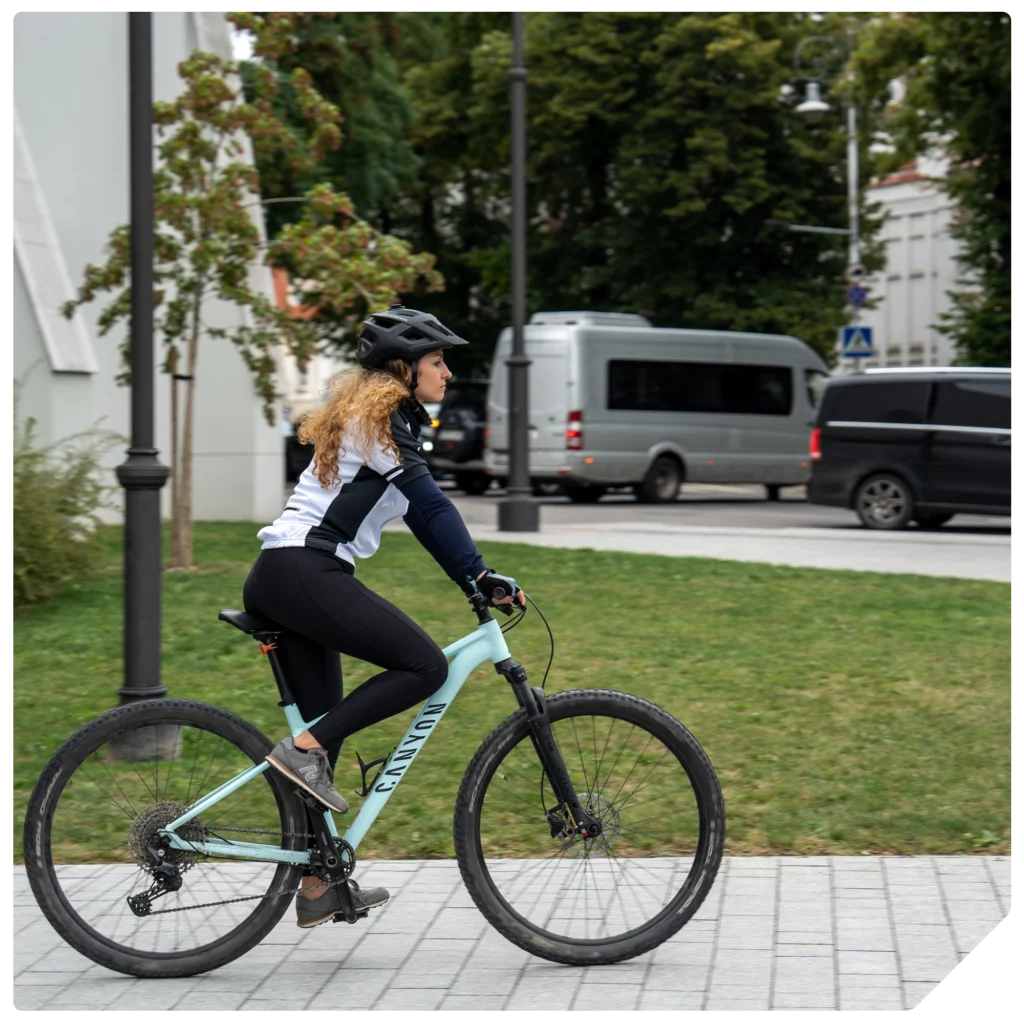- en
More Hustle. Less Bustle. How Lithuania balances fast-paced careers with meaningful lifestyles.

Lithuania delivers the best of both worlds. The hustle of a growing startup scene, and the bustle-free lifestyle.
The importance of career agility in an uncertain world
In February 2023, an international survey conducted by Kantar which polled 10,000 workers, uncovered an interesting statistic. A whopping 40% of Gen Z employees are combining at least two roles simultaneously. And the reasoning behind this is not just to keep up with the rise in the cost of living that’s hitting pockets the world over. In an interview given for a recent BBC article, Caitlin Duffy, director of research at consulting firm Gartner, observed that as career paths become less linear, young people are now looking to set themselves up for long-term employability through flexibility, and the ability to move between workplaces. After all, with the lightning-fast rise and integration of technologies like AI, role obsolescence is a real risk. To be in the running, talent needs to be able to pivot. Fast.
Finding the right place to pivot
But to thrive in what can be loosely defined as “hustle” culture, aspiring and determined talent need to be in a place where there is dynamism, flexibility and an agile startup-minded business community. Enter Lithuania. Now the leader in Central and Eastern Europe in terms of growth and enterprise value, the Lithuanian startup sector is currently composed of 870 startups, employing 17,500. And its growth has been astonishing. According to Dealroom.co, the value of Lithuanian startups has grown sixteen-fold over the last five years, now sitting at €9.5B. And even the turbulence of 2022 could not hold it back, with the startup sector continuing on its upward trajectory of untrammeled growth. In fact, even in a climate where mass redundancies have become par for the course, Lithuania is bucking the trend, with employee numbers increasing by 12% in 2022.

Skyrocketing careers in innovation-busting sectors
Fintech, Cybersecurity, and Gaming. These are the innovation-intensive sectors that have been experiencing notable growth in Lithuania. They are also the perfect arenas for people hungry to test themselves. Let’s dig a little deeper to see what’s on offer.
Leading the local cyber security sector is Tesonet, the home of Nord Security and its flagship product, NordVPN. The company has been on a crazy growth journey since its inception. Today, acknowledged not only as a fully-fledged unicorn, it is also ranked at the pinnacle of its industry. But this is not a company wanting to rest in its laurels. In September 2023, it secured an additional 100 million in funding to keep building on its vision. And the company has even opened its own business center, Cyber City, in the revitalized Vilnius “New Town” district. Described as a city within a city, it is a complex uniting all of the companies in the Tesonet portfolio under one roof, alongside restaurants, a gym, and a bar. But this is only one of many cyber security startups on the scene, other big names are Vinted, with major global companies like Moody’s, Nasdaq and Oracle also running cyber security operations from the country. So, lots of potential there for determined people to push forward exciting careers.

Meanwhile, the exciting field of gaming is also increasing its presence. In fact, the sector has enjoyed a 300% increase in the number of game developing companies in its community in the past five years. Recent years have seen the arrival of big names like Wargaming, who relocated its headquarters and team wholesale to the Lithuanian capital, Vilnius. What’s attracting these businesses is the tons of incubators and accelerators, industry conventions, game jams, and streamlined migration process for foreign talent that the country provides. And migration processes have not only been streamlined for Gaming. The kind of talent needed for Cyber Security and the country’s other burgeoning tech sector, Fintech, also benefit from such fast-track migration procedures.
And when you’re talking about Fintech, again the numbers speak for themselves. Lithuania, and more specifically its capital Vilnius, leads the EU as a Fintech Hub when it comes to licenced companies. There are currently 263 Fintech’s registered in Lithuania, employing upwards of 7,000 people and this number is only set to rise. This year, a memorandum was signed by local institutions and regulators for the development of the financial technology Sector in Lithuania for 2023-2028. The goal – to make it easier for both innovative companies and great talent to relocate and grow in Lithuania. And this drive has already seen amendments made to existing laws that make it easier to hire foreign talent, meaning that the government will cover relocation costs up to EUR 3,000.
So, as we can see, these sectors are very much in rude health. And they are on the lookout for the kind of talent that knows how to work. In particular, the sector is keen on finding people with experience, or a willingness to become experts, in IT, cybersecurity, product management, finance, marketing, and digital marketing specialists, as well as for data scientists and data analysts. For talent that fits the bill, there’s the opportunity to work in dynamic environments that provide talent with the challenge of thinking on their feet. Arguably, more valuably, they’ll also get the chance to build the kind of multifaceted skill sets that are so essential in the modern working world.
But one of the things that really makes Lithuania unique is that it’s not all hustle.
Slow living. From tech that makes your life simpler to enjoying a simpler life.
In Lithuania, you’ll find that innovation is not solely done in the startup sector, it’s also finding its way onto the streets, with a mission to make life that little bit easier. Local startup Pixevia has teamed up with regional supermarket chain IKI to launch a series of self-service stores. Here, using Pixevia’s proprietary software solutions, customers can scan their phones as they enter the shop, with the shop’s scanners then recording every product picked up through the store. It can then be paid for with a convenient scan of your smartphone. Then there’s the fleet of autonomous vehicles that are delivering shopping right to consumers’ doors in Vilnius. Easy as that.

The nation takes work-life balance seriously, guaranteeing at least 20 paid vacation days and protected working hours by law. With an impressive 15 annual public holidays, Lithuania leads Europe here, offering ample time for festivities and downtime. For those with families, Lithuania also boasts one of the EU’s most generous parental leave policies, meaning that precious family time is not impinged on. Here, talent is invited to shape their career at their own pace, harmonizing professional and personal life. Relocating talent will also experience a working environment where overtime is the exception, not the rule. And where companies are committed to providing upskilling and reskilling opportunities.
That’s not all, the country’s mid-sized cities prioritize a slower, more manageable lifestyle, reducing commutes and enhancing daily living. Meanwhile, these urban centers boast reliable services, abundant green spaces, cost-effectiveness, and a rich cultural scene. In Lithuania, nature and culture are at your doorstep.
So, as you can see. Lithuania delivers the best of both worlds. The hustle of a growing and multifaceted startup scene, and the bustle-free benefits of a lifestyle that privileges time and leisure over grind.